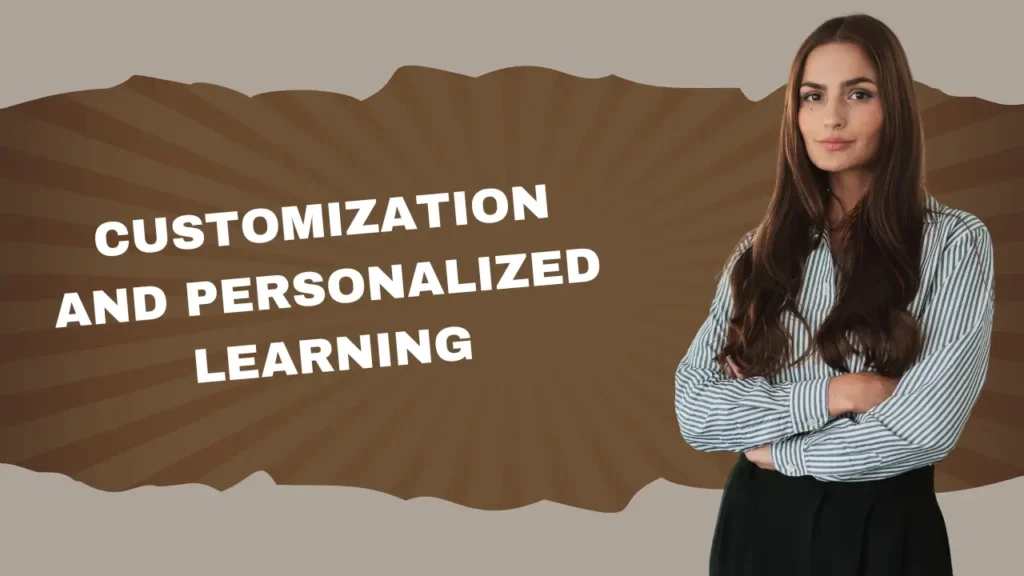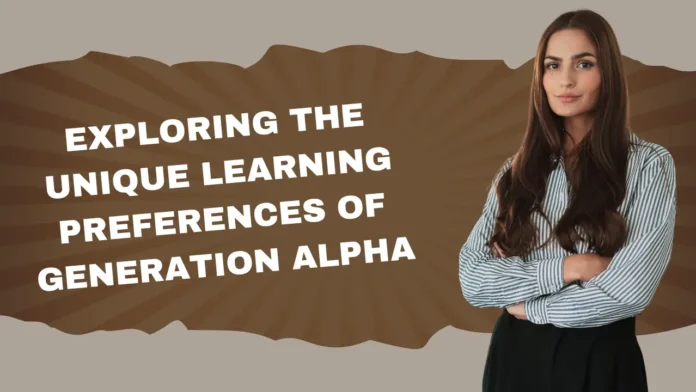Exploring the Unique Learning Preferences of Generation Alpha: Generation Alpha, the cohort born from 2010 onwards, is growing up in a world that is vastly different from the environments of previous generations. Immersed in technology from birth, they interact with learning tools and platforms in ways that profoundly shape their preferences and needs in education. To effectively engage and educate this generation, it is essential to understand their unique learning styles, preferences, and the factors that drive their cognitive development.
The Digital Natives: How Technology Shapes Learning
Technology as a Primary Learning Medium
For Generation Alpha, technology is not an accessory to learning—it is the foundation. Unlike prior generations who adopted technology as a tool over time, Generation Alpha’s exposure to digital devices is integral to how they interact with the world. Tablets, smartphones, and smart learning devices are commonplace in their educational journeys, often starting from early childhood.
The constant availability of information, interactive educational apps, and learning platforms gives Generation Alpha instant access to knowledge. This has fostered self-directed learning, where students are comfortable seeking answers, exploring concepts, and engaging in independent study with the aid of the internet. Their ability to navigate search engines, online libraries, and educational apps makes them far more autonomous learners compared to their predecessors.
Interactive and Gamified Learning
Generation Alpha thrives on interactive learning experiences, where engagement is key. Unlike traditional methods of passive learning through lectures or textbooks, this generation shows a preference for active participation. Gamified learning platforms, which incorporate game mechanics like points, levels, and rewards, have become popular. These platforms motivate students to stay engaged by offering immediate feedback and a sense of achievement.
Educational games that align with curriculum objectives not only reinforce core subjects like math, science, and language but also build critical thinking and problem-solving skills. Moreover, this form of learning emphasizes hands-on engagement, which fosters deeper understanding and retention of concepts.
Visual and Multimedia Learning Preferences

Preference for Visual Content
Visual learning plays a critical role in how Generation Alpha processes information. Given their constant exposure to social media platforms like YouTube, TikTok, and Instagram, where visual content dominates, they naturally gravitate toward educational materials that are rich in multimedia. Infographics, videos, animations, and interactive visuals are more effective in holding their attention compared to text-heavy resources.
Video-based learning has emerged as one of the most popular forms of content consumption for Generation Alpha. Short-form videos, tutorials, and how-to guides on platforms like YouTube offer quick, digestible insights into various topics, from educational subjects to hobbies and interests. These forms of media provide both entertainment and education, making learning more engaging and accessible.
Multitasking and Parallel Processing
Generation Alpha has grown up multitasking in digital environments. They are adept at processing multiple streams of information simultaneously, often toggling between screens and tasks. This parallel processing ability allows them to learn through multimedia formats that deliver information across visual, auditory, and textual mediums at once. While this may enhance their ability to absorb varied types of information, it also necessitates a shift in teaching strategies to accommodate shorter attention spans and ensure that educational content is dynamic and engaging.
Collaborative and Social Learning
Learning Through Social Interaction
Although technology plays a pivotal role in their education, Generation Alpha values collaboration and social learning. Social media platforms and online forums provide opportunities for them to learn from peers, engage in group discussions, and participate in collaborative projects. This generation appreciates learning environments where teamwork and cooperation are encouraged, whether in a classroom setting or through virtual learning platforms.
Collaborative tools such as Google Classroom, Microsoft Teams, and Zoom have become integral in education, allowing Generation Alpha to connect with peers and teachers in real-time. These platforms provide the opportunity for real-time feedback, enhancing the learning experience by fostering dialogue and encouraging idea-sharing.
Peer-to-Peer Learning
Peer-to-peer learning is another critical component of how Generation Alpha absorbs and processes information. They frequently turn to online communities and social networks where peers share resources, tips, and strategies related to their studies or hobbies. This social learning model encourages self-expression, peer feedback, and a collaborative approach to education, where students learn not only from educators but from one another.
Customization and Personalized Learning

Emphasis on Personalized Education
Generation Alpha’s digital proficiency and independent nature demand more personalized learning experiences. Traditional, one-size-fits-all educational models are less effective in meeting their individual needs. Instead, adaptive learning technologies that adjust to each student’s pace, learning style, and ability are preferred.
Learning platforms like Khan Academy, Duolingo, and others offer tailored educational experiences that evolve with the learner’s progress, providing challenges and reinforcement where needed. This personalized approach fosters engagement and boosts achievement, as students can focus on areas that require improvement and skip content they have already mastered.
Data-Driven Insights in Education
Educators now have access to data analytics tools that track student progress, identify learning gaps, and adapt teaching strategies to individual needs. This use of data-driven insights helps educators create bespoke learning environments that cater specifically to Generation Alpha. Students benefit from having curriculum paths that are flexible, ensuring that they remain challenged without feeling overwhelmed.
By offering personalized content, educational platforms and schools are better able to address the unique strengths and weaknesses of each student, enabling a more effective learning experience.
Developing Lifelong Learning Habits
Fostering Curiosity and Self-Motivation
Generation Alpha demonstrates an innate curiosity for learning, often seeking knowledge beyond the confines of traditional schooling. Encouraging lifelong learning habits is essential for preparing them to thrive in a world where adaptability and continuous learning are crucial. With their exposure to a wide range of digital tools and resources, they have the means to pursue interests independently, fostering self-motivation and a love for discovery.
Building Critical Thinking and Problem-Solving Skills
Given the wealth of information available to them, one of the most important skills for Generation Alpha to develop is critical thinking. They must learn how to discern credible sources, analyze data, and think critically about the information they consume. Educational programs that emphasize problem-solving, creativity, and innovation will equip them with the tools they need to navigate the challenges of the future workforce.
Conclusion
Generation Alpha is rewriting the rules of learning. Their technologically driven, visually oriented, and highly interactive learning preferences challenge educators to rethink traditional methods and embrace innovative approaches. As we continue to explore their unique learning styles, it is clear that this generation will thrive in environments that prioritize personalization, collaboration, and digital fluency.




